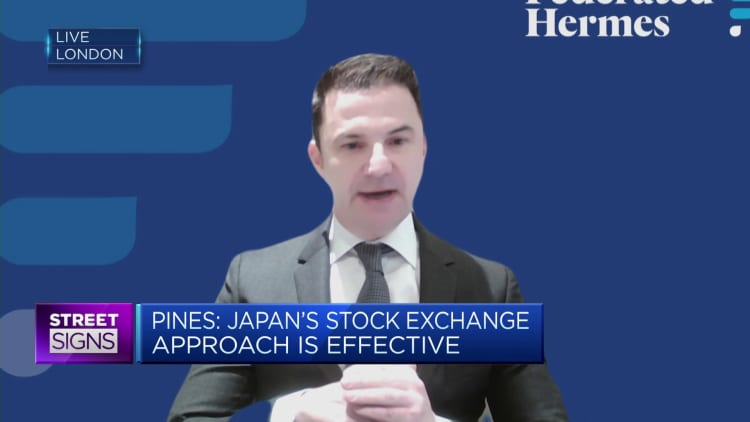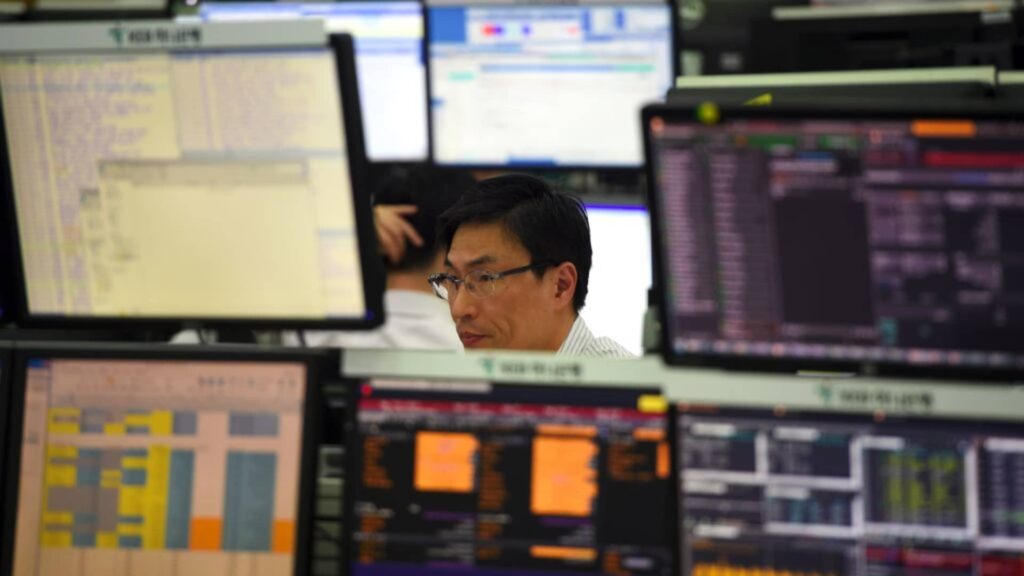A currency trader monitors exchange rates in the trading room of Cape Hana Bank in Seoul, South Korea.
Jung Eun Ji | AFP | Getty Images
South Korea's financial regulator will consider accelerating corporate reforms proposed last month and could add new measures, after market participants expressed concerns that the steps announced may not be enough to address the so-called “Korean discount.”
The Financial Services Commission held a meeting on Thursday with local institutional investors and the country's pension fund, where Vice Chairman Kim Soo-young said the timeline for previously announced reforms would be accelerated, according to a Reuters report.
“We will do our best to announce and implement before the previously scheduled date, as market expectations are high,” he added.
In a statement issued after the meeting, the FSC said it aims to create transparent markets, make the capital market more accessible, and push for shareholder returns to boost South Korea's undervalued equity markets.
The regulator said it would also encourage institutional investors to “actively communicate with companies about the need for voluntary measures to boost valuations.”
The Korea Financial Services Authority launched the “Corporate Valuation Program” in late February to boost shareholder returns and stock prices through incentives including tax benefits, which it confirmed again on Thursday.
It also seeks to “encourage listed companies to prepare and voluntarily disclose valuation enhancement plans.”
These measures, similar to those taken by Japan, fell short of market expectations. Analysts said that what worked in Japan and helped push its stock markets to record levels after 34 years, may not work in South Korea.
The lack of targeted moves as well as South Korea's dominant chaebol have been cited as reasons why South Korea needs to do more to raise stock valuations. Chaebols are large, family-owned global conglomerates, usually controlled by the founder's family. Notable major companies include Samsung Electronics, LG, SK and Hyundai.

The Financial Services Authority had previously announced the launch of the “Korea Top Value Index” for institutional investors, including pension funds, which is an index similar to Japan’s JPX Prime 150 index, which includes the country’s best-performing companies.
“In close consultation with institutional investors, KRX plans to conclude the development of Korea’s top value index by the third quarter of this year,” the Financial Services Commission said in a statement on Thursday.
